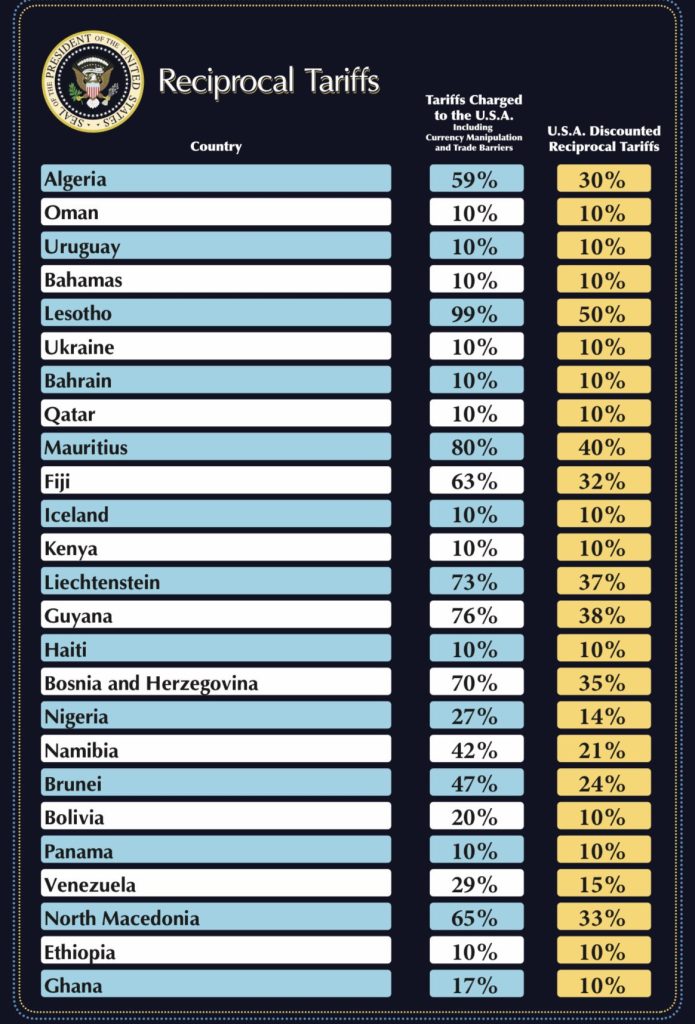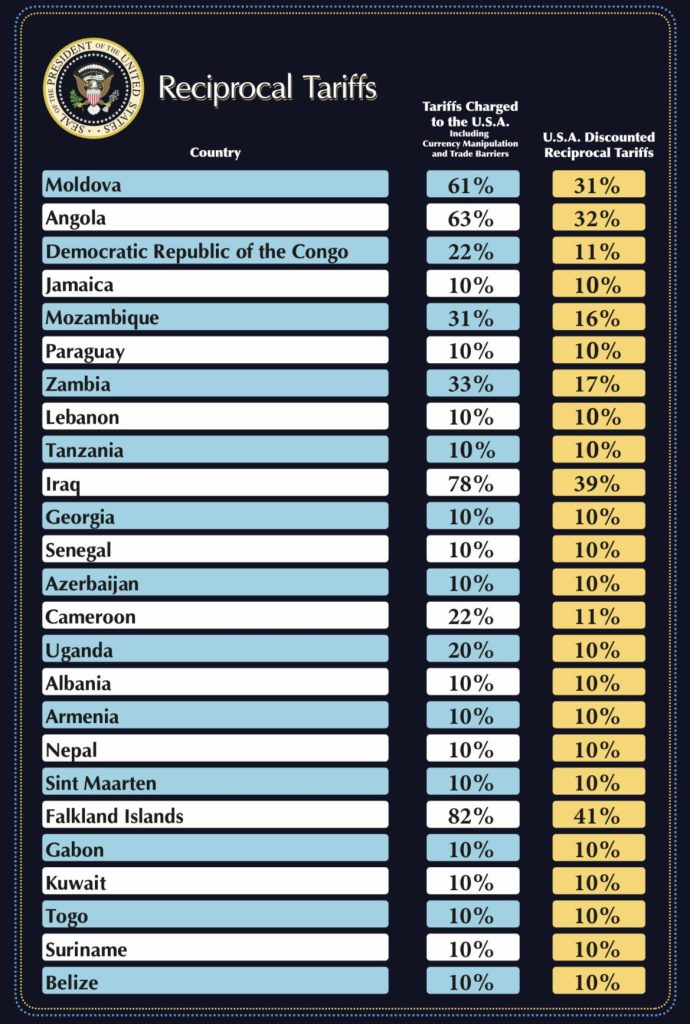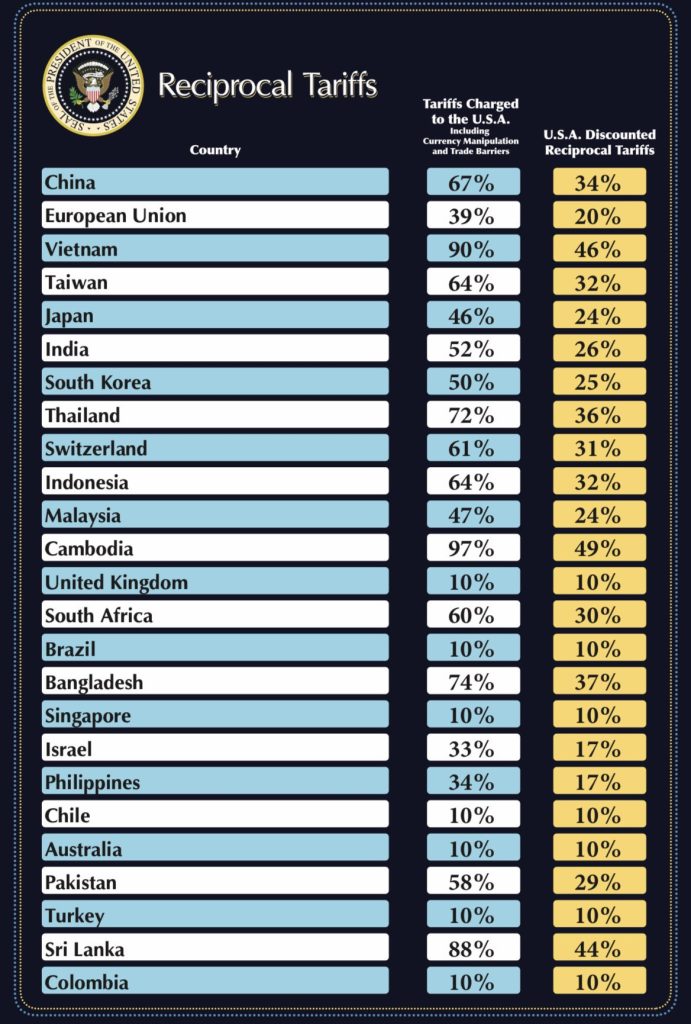
President Donald Trump on Wednesday declared a 10 per cent baseline tax on imports from 185 countries and even higher tariff rates on dozens others, including Nigeria, on which he slammed a 14 per cent tariff regime.
In addition, Trump held up a chart while speaking at the White House, showing the United States would charge a 34 per cent tax on imports from China, a 20 per cent tax on imports from the European Union (EU), 25 per cent on South Korea, 24 per cent on Japan and 32 per cent on Taiwan.
Aside from Nigeria, some African countries that will bear the brunt of the new policy include: Algeria (30 per cent); Lesotho (50 per cent); Mauritius (40 per cent); Kenya (10 per cent); Namibia (21 per cent) and Ethiopia as well as Ghana 10 per cent apiece. South Africa was handed down a reciprocal tariff of 30 per cent.
The president used aggressive rhetoric to describe a global trade system that the United States helped to build after World War II, saying “our country has been looted, pillaged, raped, plundered” by other nations.
Trump declared a national economic emergency to launch the tariffs, expected to produce hundreds of billions in annual revenues. He has promised that factory jobs will return to the United States as a result of the taxes.
THISDAY’s checks showed that in recent years, Nigeria’s exports to the United States have experienced fluctuations. In 2022, exports were valued at approximately $4.9 billion, marking an increase from around $3.6 billion in 2021.
However, in 2023, exports decreased to $4.86 billion. The primary dominant exports from Nigeria to the US include crude oil and natural gas. In smaller quantities, others include: Cocoa and cocoa products, Sesame seeds, Ginger and spices, Solid Minerals & Metals as well as manufactured & semi-processed goods.
Nigeria also benefits from the African Growth and Opportunity Act (AGOA), which grants duty-free access for certain exports into the US market. However, crude oil remains the dominant export by far.
But Trump’s policies risk a sudden economic slowdown as consumers and businesses could face sharp price hikes on autos, clothes and other goods, the Associated Press report added.
“Taxpayers have been ripped off for more than 50 years,” Trump said in remarks at the White House. “But it is not going to happen anymore,” he added.
Trump was fulfilling a key campaign promise as he imposed what he called “reciprocal” tariffs on trade partners, acting without Congress through the 1977 International Emergency Powers Act in an extraordinary attempt to both break and ultimately reshape America’s trading relationship with the world.
The president’s higher rates would hit foreign entities that sell more goods to the United States than they buy, meaning the tariffs could stay in place for some time as the administration expects other nations to lower their tariffs and other barriers to trade that it says have led to a $1.2 trillion trade imbalance last year.







